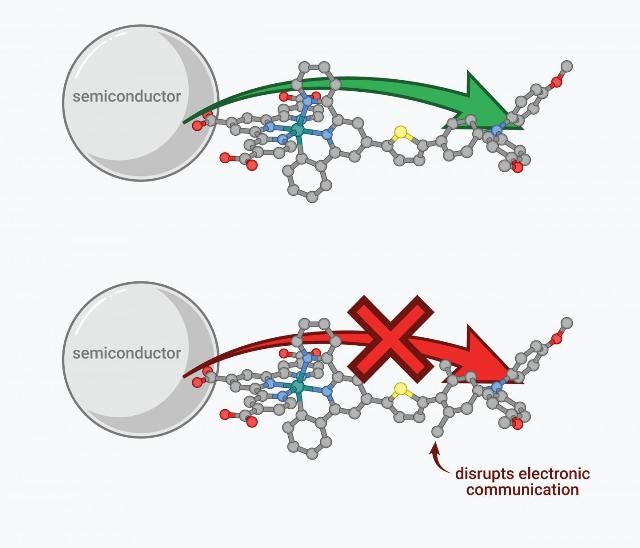Jun 21 2016
A team of researchers from the University of North Carolina located at Chapel Hill and the University of British Columbia have found a unique method to maximize the transfer of electrons in semi-conductors that are used in solar fuel solutions. This study, featured in the June 20th issue of Nature Chemistry, could have the potential to influence devices that are used to transform sunlight into fuel and electricity.
 Molecules can be designed to act as a gate and keep electrons moving forward in one direction. (Credit: UBC Chemistry)
Molecules can be designed to act as a gate and keep electrons moving forward in one direction. (Credit: UBC Chemistry)
Based on earlier studies, researchers have identified distance traveled by an electron as a factor that influences the speed of its transfer at semi-conductor interfaces. The recent discovery has thrown further light on the subject. It shows that in addition to the distance traveled by the electron, the kind of chemical bond or the bridge that the electron travels in also has an impact on the transfer.
Now we can design molecules to act as a gate and keep electrons moving forward in one direction and not reverse their direction. If electrons go in the wrong direction, we lose much of the sun’s energy as heat before it can be converted into electricity or fuel.
Curtis Berlinguette, Chemist and Chemical Engineer, UBC
The research would also impact how the transfer of electrons in biological systems has been perceived till date.